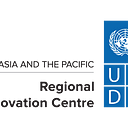Next Gen Gov Asia — Governing in an Age of Long Emergencies
“Everything that we are doing is an experiment, governance experiments for learning and reforming at a pace faster than ever”*
During the course of the last few months we have seen the Asia Pacific region crystalize its global leadership role in the face of the COVID-19 pandemic.
Beyond the immediate crisis response, however, a series of cascading risks is emerging; from shifts in retail and production currently reshaping global supply chains (the ready-made garments sector which accounts for more than 80 percent of Bangladesh’s manufacturing income has already suffered a loss of $3 billion), to travel and tourism threatening the major sections of the economy in Thailand or India (whose government is facing up to job losses of 136 million), to the compounding of climate and pandemic risks (from pandemic to droughts).
Today’s world is a systemocracy: a world of near real-time interdependency and new shared regional vulnerabilities. The pandemic is exposing its vulnerabilities.
For the Asia Pacific region to move forward, together we need to drive structural reform of our governance models, public services and welfare — reinventing them to be fit for the 21st century to drive achievement of the SDGs. This will require rapidly and radically expanding them to include those poor and marginalized, and disproportionately hit by the cascading crises.
Sensemaking — grounding our work in the realities of “the strange now”
We spent the last few weeks in listening mode: mapping bold policy moves and citizen driven initiatives, interviewing policy makers across Asia Pacific who are at the forefront of the COVID response, and organizing intergovernmental, peer-to-peer dialogues.
Through our discussions with senior civil servants and leaders across the region, 5 dimensions emerged as immediate priorities for action:
- Redesigning public health for an age of pandemics.
- Scaffolding & accelerating education & skills transition
- Remaking social welfare in an age of long emergencies.
- Investing in the creation of lead markets & economic development
- Governance & statecraft in uncertainty.
These dimensions, whilst needing discrete attention, will require significant and unprecedented coordination, both at the country level and collectively at a regional and global level, to create shared prosperity.
The need for “a new how” — Real Time, High Speed, Full Scale
Addressing the speed and scale of risks requires us to recognize we are no longer in an age of small-scale experimentation. We do not have the luxury to create evidence in support of national scale roll outs — we simply don’t have the time if we are “to take 100% of decisions with 50% of knowledge”. This future will demand a new type of public programming (& reprogramming) for adapting to radical uncertainty.
We saw glimpses of this new modus operandi and documented it through our podcast. But for the “innovation dividend” to bear long term fruit we need to capitalize on the possibilities opened up during the crisis. And while there’s been a significant spike in interest in mission-driven development, governments’ muscle in designing at scale is somewhat atrophic; driven by the interplay of legacy systems and interests that are vested in the “old normal”.
This capability to undertake large scale national programs is increasingly characterized, not just by speed, but also by principles:
● Preventative logic and investing/redefining core critical infrastructure
● Radical inclusiveness — based on principles of universality in terms of social safety nets, health services and digital connectivity.
● Agility — from procurement to digital roll out
● Robust and coherent judgement to make sense of real-time data — there are no best practices or previous evidence for what does and does not work.
● Mission-oriented — new massive-scale programmes involving multiple actors ranging from individual households and spanning across the private, public, and nonprofit sectors.
● Radically open with real-time accountability and the ability to counteract misinformation without curbing privacy and human rights.
● System and portfolio logic — across traditional government silos, incentives, culture, services, institutions, infrastructure, and finance.
Both, the challenges we face and the ‘new how’ we need require us to break the mold of past governance models.
NextGenGovAsia: a collaborative journey with policymakers from across Asia
Having identified the new openings created by the pandemic response, honed in the priorities for action and the “new how”, it is time to accelerate the transition to a different normal. We also want to focus on intergovernmental learning — the pandemic crisis has highlighted the need for new mechanisms to transfer experiences and insights across borders.
The aim is to:
- Co-create tangible, country-specific policy transformation options
- Accelerate intergovernmental learning
- Seed a secure, collaborative launchpad for regional innovation in the future of statecraft
This journey kicks off on June 25 with the online summit bringing together senior decision-makers and civil servants from across Asia. Watch this space for more updates.
*Quote from one of over 30 senior civil servants and leaders we interviewed across Asia.
If you’re interested in being part of this exploration, and connecting leaders and experimenters, get in touch, drop a line to Alex (alexandru.oprunenco@undp.org or @AlexOprunenco) and Indy (indy@darkmatterlabs.org or @indy_johar).
